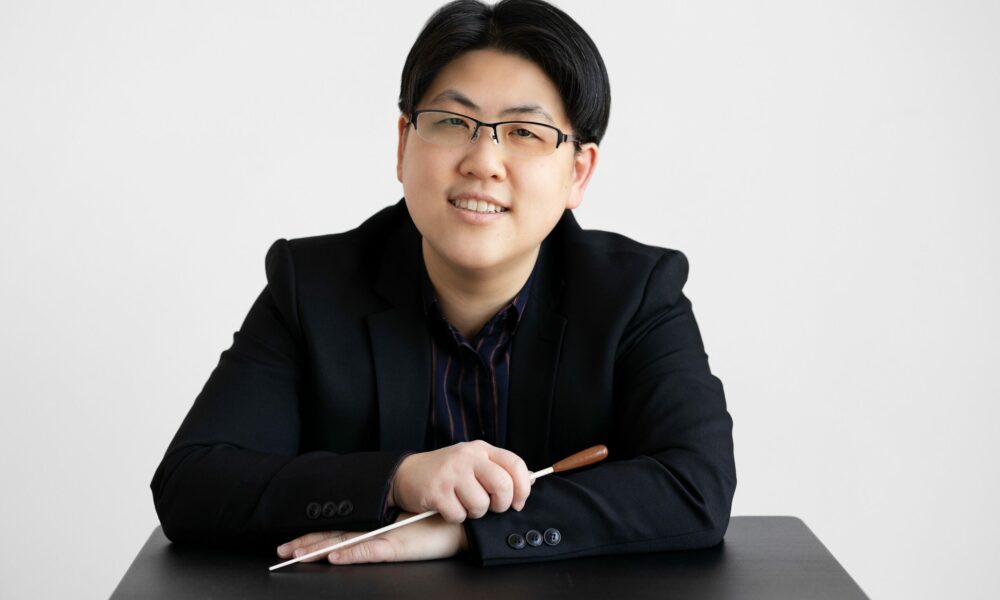

Today we’d like to introduce you to Tiffany Chang.
Hi Tiffany, can you start by introducing yourself? We’d love to learn more about how you got to where you are today.
I’m a conductor obsessed with leadership and helping musicians feel more valued, seen, and fulfilled in their work.
I began my musical studies playing the cello and the piano. During my college years, I quickly found that every aspect of music fascinated me. I wasn’t just interested in performing. I was equally curious about music composition (the creative process in building ideas) and music theory (analyzing and reverse-engineering how a composer put their ideas together). l also loved leadership, helping a group of people from point A to point B and becoming better along the way. I love seeing minds being open as I share something that perhaps can inspire people to access something they never thought was possible.
Becoming a conductor allowed me to combine all those curiosities into one job – I can perform and create art in real-time on the stage, I can think about how music works from a composer’s perspective, I can solve mysteries in figure out how composers put their works together, and finally, I can serve other musicians as a leader.
My path has taken me to so many realms in the performing arts – being a conducting professor, conducting university orchestras of all levels, working with youth orchestras, guest conducting professional and community orchestras, leading opera productions across the country, premiering brand new works with new music ensembles, and collaborating with stage directors, dancers, multimedia and visual artists. I love exploring how different art forms intersect and support each other in something bigger than ourselves.
Recently, my ongoing interest in leadership led me to explore industries outside of the arts (particularly business and marketing). I took part in several online workshops such as the altMBA and my mind was blown. I became curious about how non-musicians have made strides in advancing what leadership means, and I can’t help but find that the arts remain stuck in old paradigms. In reflecting on what I’ve learned, experienced, and observed as a professional in the arts, I realized that we are a profession (and perhaps a whole world) governed by fear. I’ve become interested in how other industries have been talking about how to build work cultures that promote psychological safety and a sense of belonging so we can be more innovative and feel more fulfilled by our work.
The music industry needs all of that.
So in the last couple of years, I’ve added content creation to my plate to help usher in the change that I hope to see in the arts industry. I started a weekly blog called Conductor as CEO where I take ideas from other industries and share how arts leaders can apply them in our work. I started to create safe spaces where like-minded individuals can have conversations that we are all afraid to have.
I’m learning that I don’t need to have all the answers, but simply showing up every day to do this work has helped me get closer and closer to being the artistic leader I aspire to be. This thought leadership work has transformed my conducting work in rehearsals and performances. And I look forward to continuing on this never-ending journey of growth as an artist and human.
I’m sure you wouldn’t say it’s been obstacle free, but so far would you say the journey has been a fairly smooth road?
One of the reasons I care so much about helping musicians feel valued is that I rarely felt that way in my professional life. I held coveted positions as a conductor at name-brand music schools. I’ve been blessed with significant awards, recognition, and accolades. Yet, I never felt like I belonged in my industry. I never felt like I was wanted or understood for how I wanted to show up as an artist. I’ve always wondered: is this all there is? Why don’t I feel like my peers or those in authority get me? I struggle with this almost every day. It’s a very confusing and uncomfortable feeling!
I played the game of trying to fit in. My training and life experiences gave me specific notions of what a conductor should be – what they need to look like, wear, say, and how to behave. Some of those inherently ran against who I was and my values. So, I felt like I had to pretend in order to be accepted.
I’ve learned the hard way that fitting in was not the answer.
I had some challenging professional experiences that caused my confidence to tank and my degree of self-worth to go in the negative. Brené Brown says, “The quintessential elicitor of shame is unwanted identity.” I’ve been given unwanted identities both by others and myself, and that led to copious amounts of undetected shame that wreaked havoc in my head. The best way I could describe the experience is feeling like I’m a pinball in a pinball machine – being knocked around randomly and out of control.
For the last several years, I’ve been digging myself out of that dark hole. I’ve discovered that the answer is not to fit in, but rather to belong.
Brown defines fitting in as “becoming who you need to be in order to be accepted” and belonging as something that “doesn’t require us to change who we are, it requires us to be who we are.”
How do I seek belonging? I realized that I need to understand myself first. Why am I the way I am? What makes me tick? What bothers me? Why?
I did deep personal work and I still do it daily to get to know myself better. I identified my values and used that understanding to interrogate myself and see the underlying reasons for making certain decisions and harboring certain feelings. As a colleague said to me, “If you don’t understand it, you can’t own it.” I realized that I was simply wrong about some of my assumptions and beliefs, and that was holding me back. I was doing it to myself. When I saw that, I had to take responsibility – and action.
For example, I came to the realization that I stuck with a professional career in academia due to a sense of obligation. I was always told that I was good at teaching. I got a couple of degrees in music education. Jobs came easily in academia one after another. I felt like I would let mentors and supporters down if I admitted that I was unfulfilled and unhappy. I was afraid of being ungrateful for the opportunities I’d been presented on silver platters.
What turned it around for me was uncovering my purpose and articulating who I was doing my work for. I use “uncover” because my purpose was always there. I just had to wipe away the grime to gain clarity.
Interestingly, I inadvertently began this journey by taking a marketing course.
I was able to see that the work I wanted to do as an orchestra conductor is for professional musicians and not students (it took me a long time to be able to say even that out loud). What I cared about is not necessarily what my students cared about. I wasn’t willing to acknowledge that before. So the gap between who my work was meant for and who I was working with led to a huge percentage of my frustration with my career. It wasn’t because I was doing subpar work or the students didn’t work hard enough. I had to accept that this gap was all OK. Neither party was at fault for the misalignment. Why would I sell a product to a market that doesn’t want it?
Once I saw this as a market alignment problem, I gained the courage to finally pivot my career out of the academic space to forge a career as a freelance conductor of orchestras and operas. This shift in mindset also helps me realize that even in the professional setting, market alignment should be a top priority for how I choose my work to maintain my sense of belonging.
There will always be groups to which I don’t belong and people who don’t understand me. And it doesn’t matter how hard I try to pound on their door, I simply am not for them. I’m now spending much more effort looking for like-minded collaborators and places where I am required to truly be who I am and bring my unique value to the table. I set my antennas to detect those frequencies and special people have come into my life.
My pivot is kind of the opposite of what many musicians are doing in a post-pandemic world. It should be scary, but I actually feel happy, centered, calm, and aligned – more so than ever in my life.
Thanks – so what else should our readers know about your work and what you’re currently focused on?
I work as a freelance conductor with a variety of orchestras, opera companies, and new music ensembles across the United States. It’s hard for me to answer the question “what do you specialize in” because, for me, I can imagine at least three definitions of specialty: 1) work I get to do the most, 2) work I really love to do, and 3) work where I feel I have value to give.
Here are my responses to each:
1) Work I get to do the most: opera, especially recently
2) Work I really love to do: symphonic repertoire, specifically Mozart
3) Work where I have value to give, where I’m at my best: collaborative and innovative work
I’d lean hard on my third definition if I had to choose one response.
I believe that the major value I bring as an artist stems from exactly not falling into a niche. I can do collaborative and innovative work equally effectively in the orchestral, opera, and new music spaces. My orchestral work informs my opera work – and vice-versa. My new music work influences the other two prongs. I don’t think I would ever be as deep of an artist simply doing one or two out of the three. They all feed each other. I guess I could say that I specialize in versatility and making connections in unexpected places.
I am drawn to working on large-scale, multidisciplinary projects. I also love solving interesting problems in a creative capacity and then effectively executing my solutions. I am able to have both artistic vision and the administrative and leadership prowess to make it happen with others on board for the ride. I had to do a lot of problem-solving during the COVID-19 pandemic and came up with some exciting projects that are very special to me and had a significant impact.
What sets me apart as a conductor is my obsession with all things leadership. I identify as a servant leader and believe that my primary role as an artistic leader on the podium is to help musicians access their best work and to enable them to achieve beyond that. By doing so, I hope that musicians would feel more valued, seen, and fulfilled.
My fascination with leadership has always been a well-protected secret. I felt weird being attracted to what leaders in other fields are thinking about. I’d feel bad reading a book on business rather than on Beethoven. At the same time, I can’t help but be intrigued by discussions about things like building work culture to motivate our people, how leaders are like coaches, and why psychological safety is so crucial for high-performing teams.
I think these leadership topics are so relevant to the arts.
Did you know that according to a study, job satisfaction rates for orchestral musicians ranked below that of prison guards? I believe there are two factors that contribute to this:
First, the leader vs. group mindset traditionally pits conductors against musicians. There is an inherent and systemic lack of trust that stifles collaboration. Musicians hold the burden of pleasing conductors, and conductors hold the burden of asserting their ideas on others. The truth is that we are all scared. Musicians are scared of making mistakes. Conductors are scared that the musicians won’t come along. We all wonder: what if they don’t like me? These are signs that we lack psychological safety.
Second, there is so much emphasis on serving the customers that the people who do the work (the musicians on stage) are often neglected. Music that was once a deep passion for them becomes merely a job–clocking in and clocking out, off to the next gig. They start feeling lost and unappreciated and stop knowing why they’re showing up in the first place. The result is unexciting art, hollow work culture, and unhappy people.
As a leader on and off the podium, I’m curious about how we can focus on taking care of the musicians who do the work – both to help musicians feel more fulfilled and also as a mechanism to serve customers. This has been the core of my thought leadership work. And I’m glad that I chose to reveal this secret passion to the world two years ago by starting my blog Conductor as CEO.
Since I have been writing and creating content, my professional work has expanded to involve being a contributor. I now share my ideas via podcasts, book chapters, speaking, interviews, and webinars on leadership topics I care about. In this capacity, I have not only been engaged by arts organizations, but by folks in other industries who resonate with my work, like project managers and executive coaches.
We’d love to hear about any fond memories you have from when you were growing up.
I was born in Taipei, Taiwan, and immigrated to the US when I was 7. We ended up in Los Angeles and would return to visit Taiwan almost every summer. During many of those summers, my sister and I always played with two of our closest cousins. One of our favorite things to do was produce little movie projects together. My dad likes taking home videos so he always had a camcorder.
The four of us would borrow it to make fake commercials and mini-films. I was the oldest, so I was naturally the director. We make up scripts for funny stories to film. We used random household items as props and action figures as characters. We sometimes also filmed ourselves as characters in these projects so we had to make our own costumes. I remember we actually had rehearsals and filmed multiple takes, so we actually took it quite seriously!
Contact Info:
- Website: www.tiffanychang.net
- Instagram: www.instagram.com/outatime123
- Facebook: www.facebook.com/tiffanychang.conductor
- Youtube:https://youtube.com/@outatime123
- Other: www.conductorasceo.com
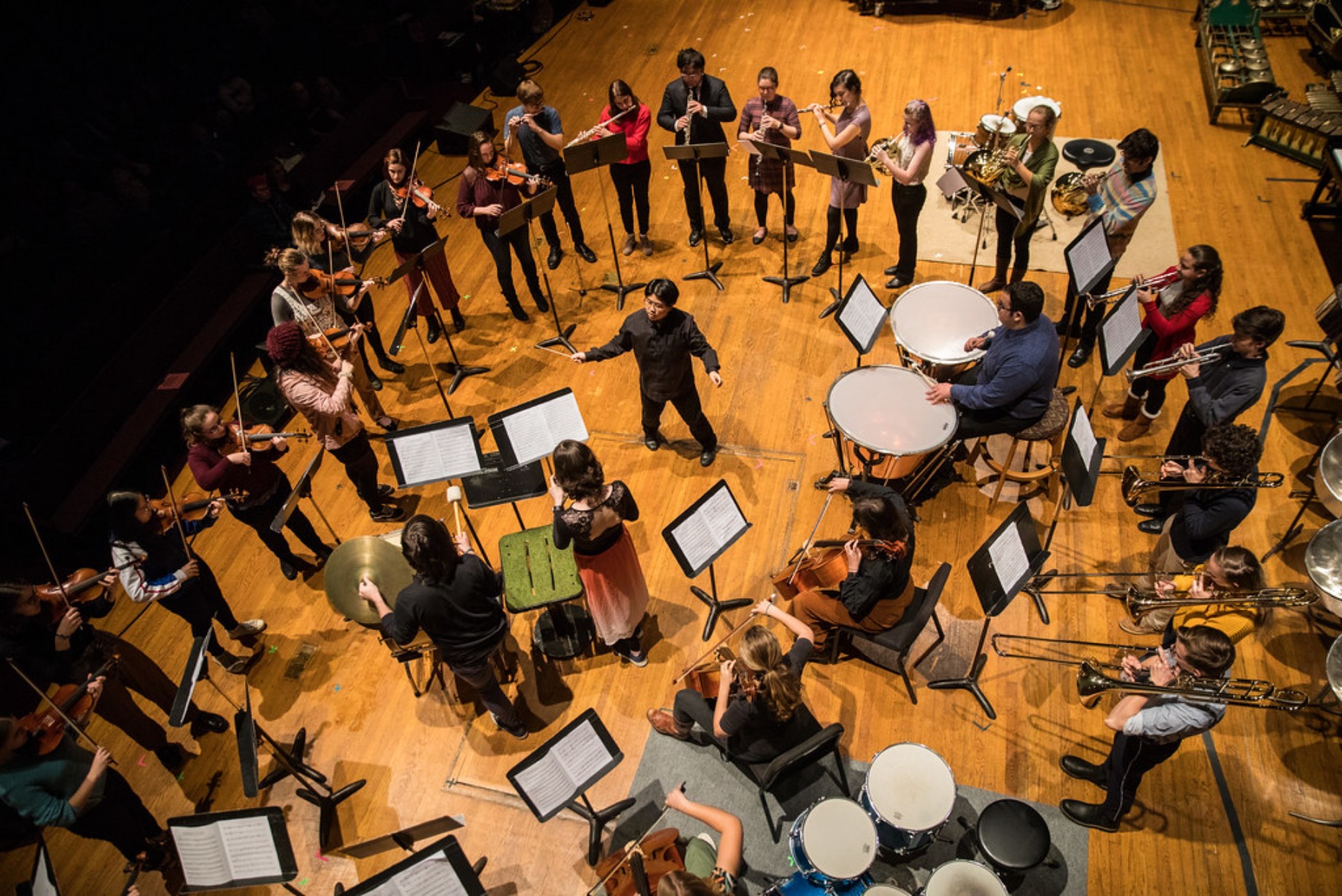
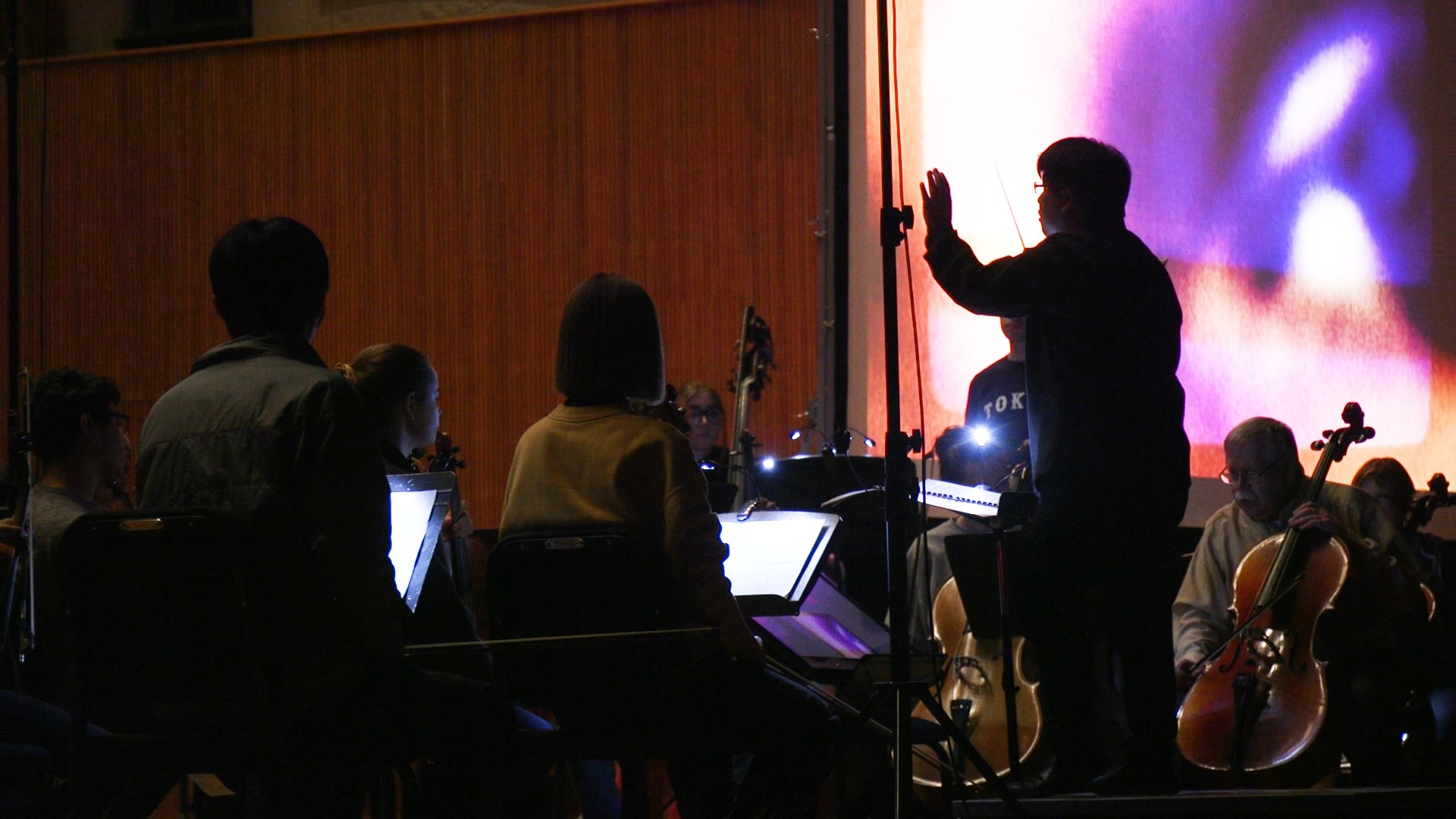
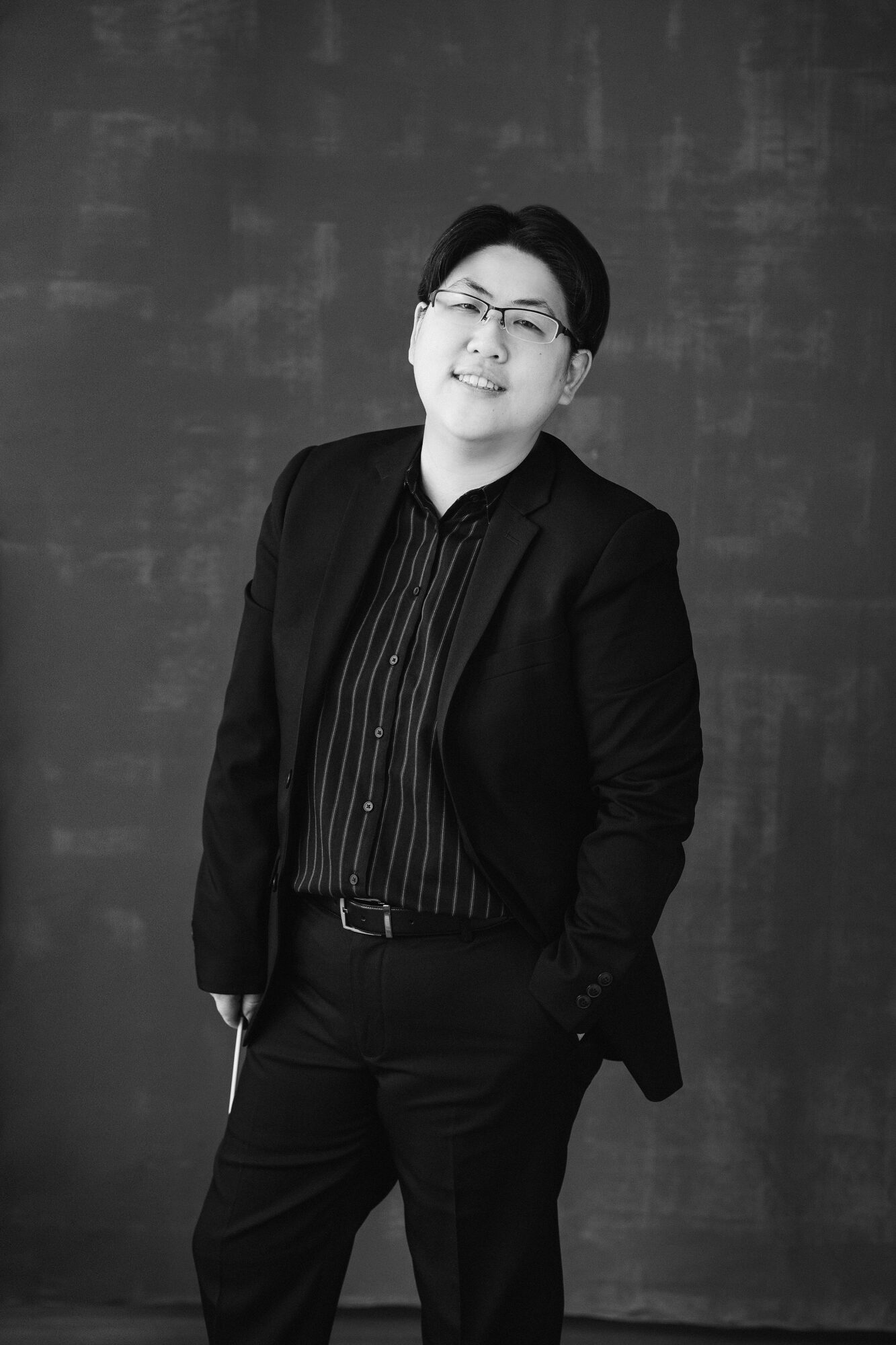
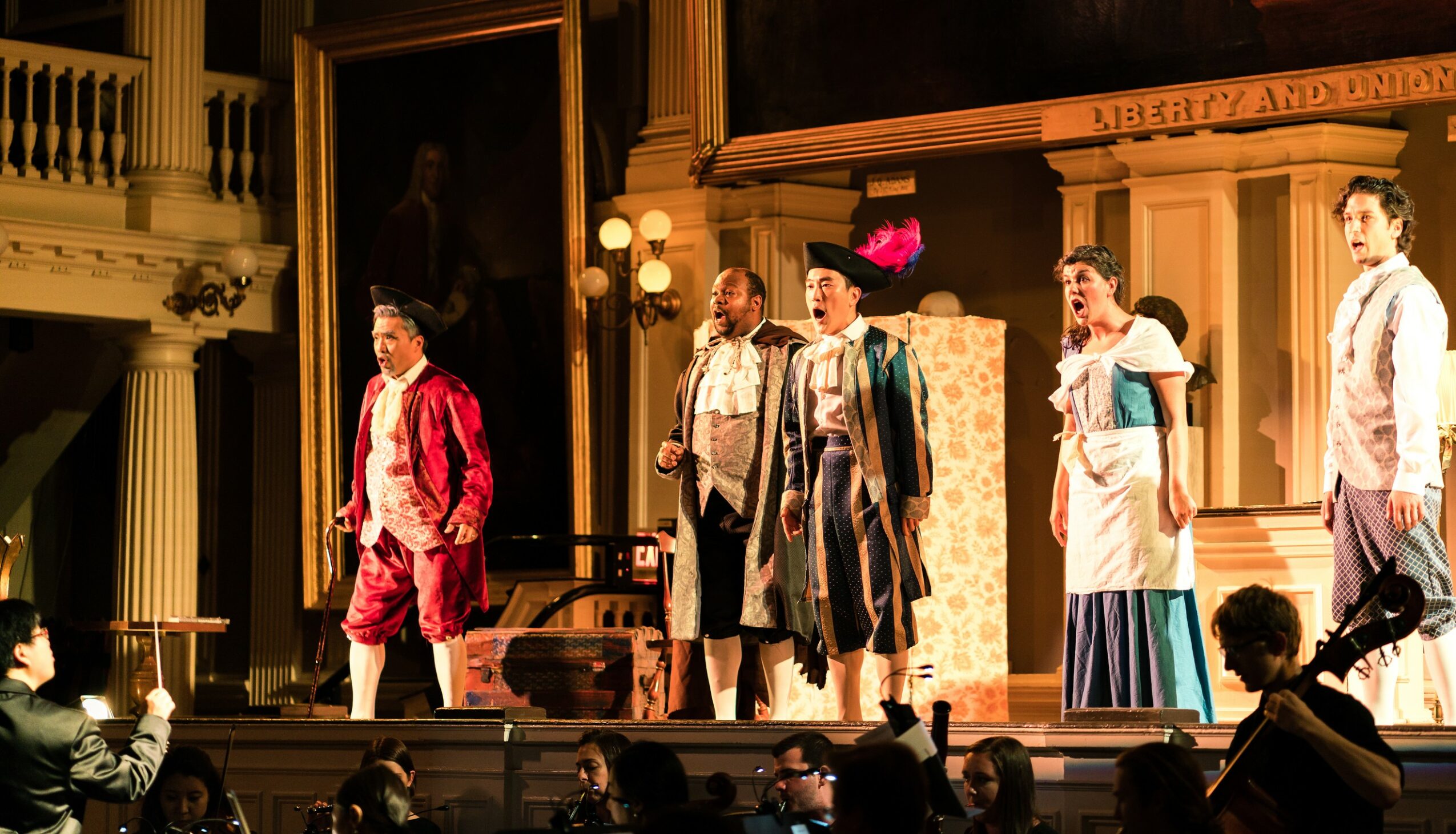
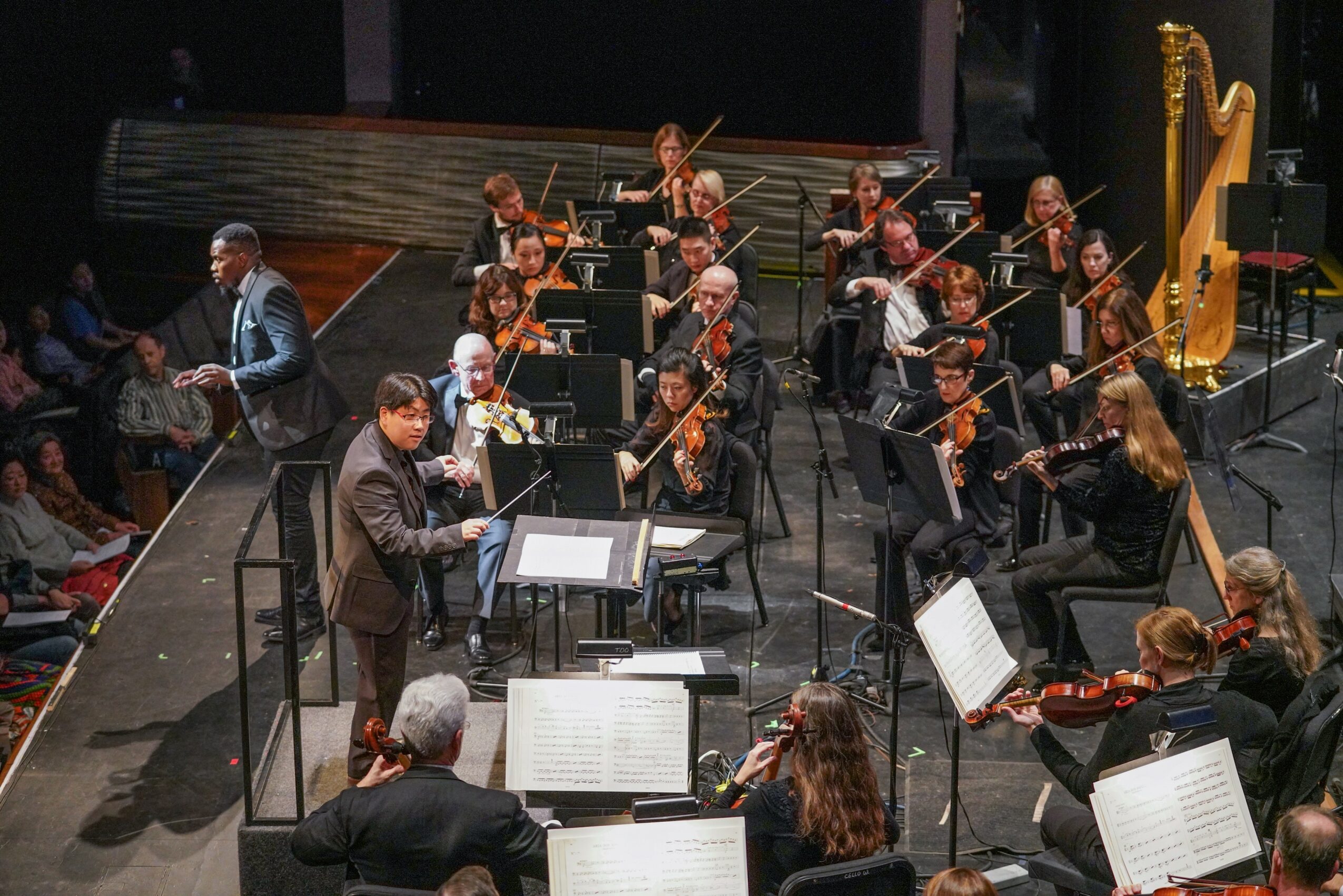

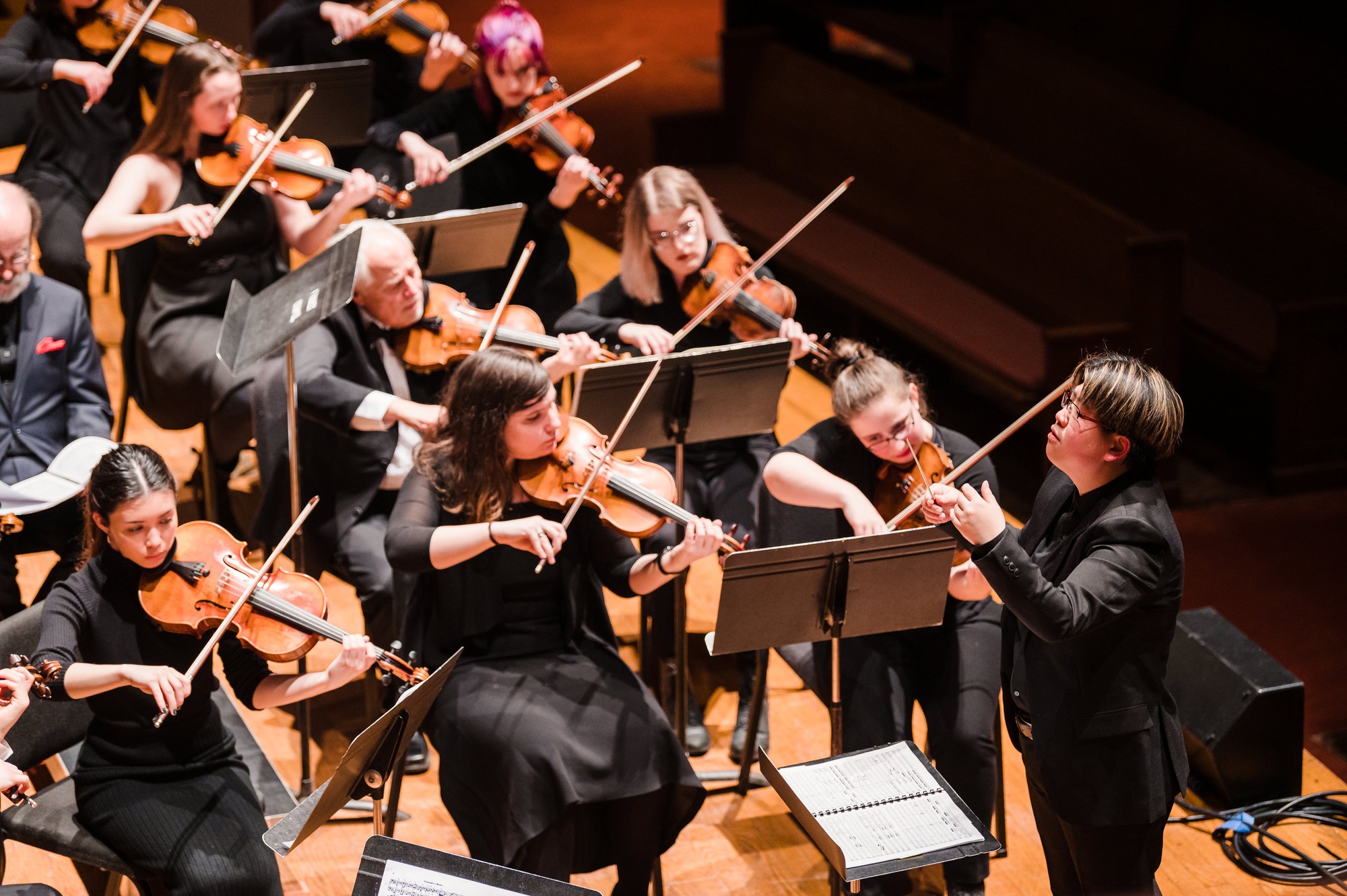
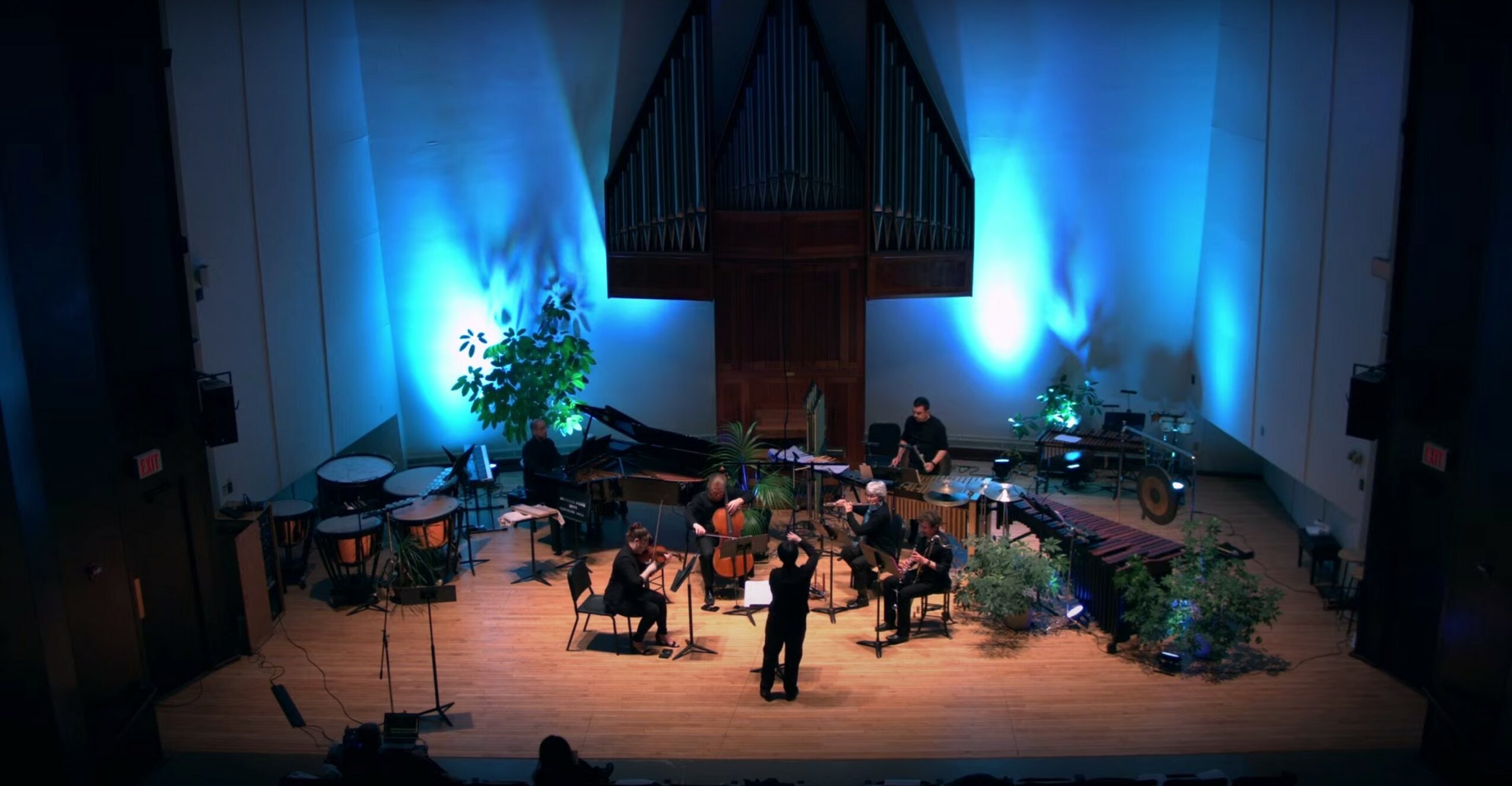 Image Credits
Image Credits
Tanya Rosen-Jones, Karen Almond, The Dallas Opera, Matt Conti, Yevhen Gulenko, and Oberlin College












